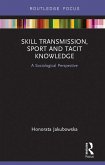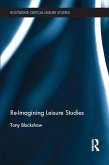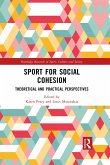Teaching the skills necessary to play sport depends partly on transmitting knowledge verbally, yet non-verbal or tacit knowledge also has an important role. A coach may tell a young athlete to "move more dynamically", but it is undoubtedly easier to demonstrate with the body itself how this should be done. Skills such as developing a "feel for the water" cannot simply be transmitted verbally; they are embodied in the tacit knowledge acquired from practice, repetition and experience. This is the first sociological study of the transmission of skills through tacit knowledge in sport.
Dieser Download kann aus rechtlichen Gründen nur mit Rechnungsadresse in A, B, BG, CY, CZ, D, DK, EW, E, FIN, F, GR, HR, H, IRL, I, LT, L, LR, M, NL, PL, P, R, S, SLO, SK ausgeliefert werden.









